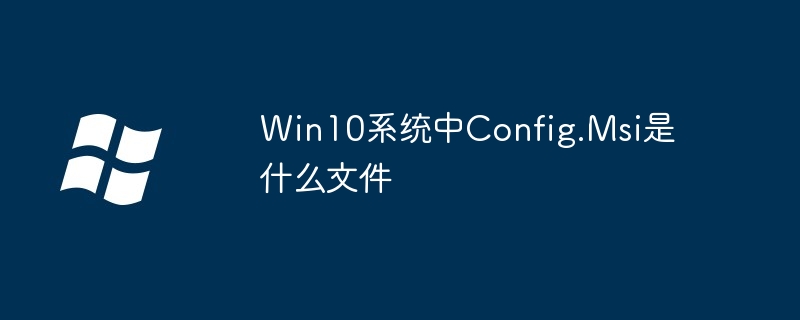Home >System Tutorial >Windows Series >What is the file Config.Msi in Win10 system?
What is the file Config.Msi in Win10 system?
- 小老鼠Original
- 2024-04-09 09:36:15875browse
The Config.Msi file is a configuration file that provides configuration information about a Windows Installer (MSI) file. It contains settings for the MSI installer, is located in the top-level directory of the package, uses INI format to store data, consists of multiple sections, and allows customization of the installation.

What is the Config.Msi file in Win10 system?
Config.Msi is a configuration file for Windows Installer (MSI) files that provides configuration information about the MSI installer.
Detailed description:
- Function: The Config.Msi file contains settings and options for the MSI installer, such as installation path, user Interface language and component selection.
- Location: The Config.Msi file is usually located in the top directory of the MSI installation package.
- Format: The Config.Msi file is a text file that uses INI format to store configuration data.
-
Structure: The Config.Msi file consists of multiple sections, each section contains a specific type of configuration settings, such as:
- [InstallOptions ]: Installation options such as target directories and file associations.
- [UserInterface]: User interface settings such as language and installation type.
- [Components]: List and selection of components to install.
- Custom Installation: You can customize the MSI installer by adding or modifying settings in the Config.Msi file. This allows administrators or users to adjust the installation behavior as needed.
- Importance: The Config.Msi file is essential for customizing and controlling the MSI installer. It allows administrators or users to specify installation options to meet their specific needs.
The above is the detailed content of What is the file Config.Msi in Win10 system?. For more information, please follow other related articles on the PHP Chinese website!

